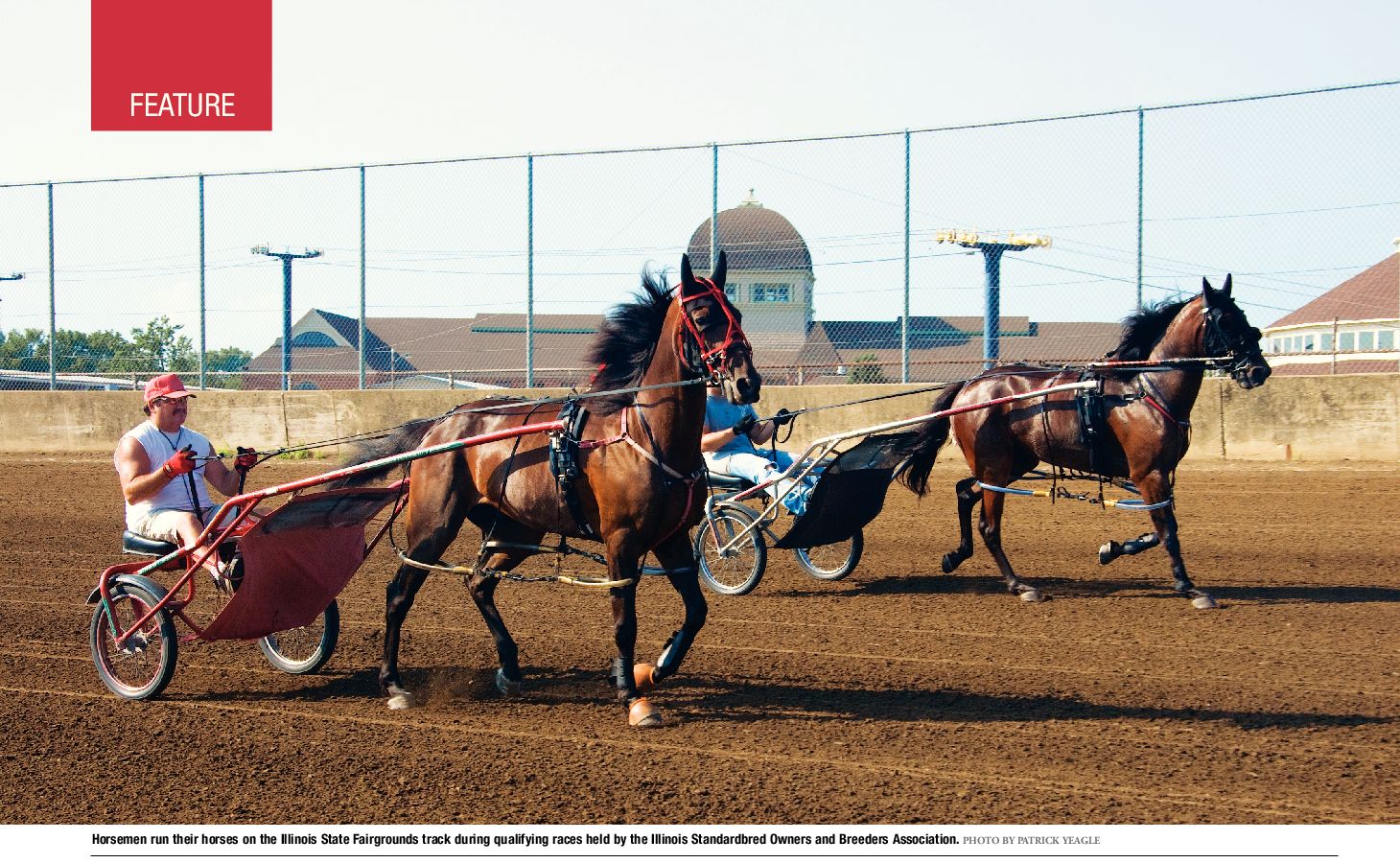
Gambling on the fairgrounds
How slot machines and harness racing could change Springfield forever
GAMBLING | Rachel Wells
Step right up! Welcome to the Illinois State Fairgrounds, where kids can milk cows, and cows can win ribbons and anyone 21 years and older can contribute to an electronic, press-abutton, hear-a-beep, wait-to-(probably)-losewhile-it-looks-like-you’re-winning casino king’s cash cow – the slot machine.
Gambling opponents say that’s what Springfield should expect to see if Gov. Pat Quinn signs a proposed gambling expansion measure that would allow racetracks, including the state fairgrounds in Springfield, to become “racinos,” where the addition of hundreds of slot machines, available year-round, would draw more gamblers to increasingly less popular horse races. “It’s going to be like a full-blown casino,” Anita Bedell says of proposed changes to the fairgrounds. Bedell is the executive director of the Illinois Church Action on Alcohol and Addiction Problems (ILCAAAP), which opposes any gambling expansion. “They say they’re going to have horse racing three to nine months a year, and I don’t know if people understand there’s going to be casino gambling year-round – 900 gambling positions.” An electronic gaming device, like those slated for racetracks in the proposed gambling expansion, counts as one “position.” Existing Illinois casinos are now only allowed to have 1,200 gambling positions, which include electronic gaming devices but also other games such as craps tables, which count as 10 positions each.
The measure would also allow the city of Chicago and four other Illinois communities to host new casinos and authorize more gambling positions at existing casinos. Combine all of the proposed new gambling together, and Illinois’ maximum gambling capacity would increase from about 12,000 positions to more than 38,000 positions, putting Illinois in 20th place for states with the most machines per resident.
Bedell and other opponents say the pro posed changes will create more gambling addicts, causing more costly social problems that will outweigh any revenue enhancements expected from the expansion. But not everyone shares Bedell’s concerns about the proposed expansion, including Springfield’s Mayor Mike Houston.
“I would support anything that is going to create activity and excitement at the Illinois State Fairgrounds,” Houston says, adding that “overall, it would be a good thing for the city.”
Houston rejects Bedell’s claim that proposed changes at the fairgrounds would be like putting a casino in Springfield. “We’re not talking about a full-fledged casino and I think that is an important distinguishing factor,” Houston says. “You have things other than slot machines at a casino.”
He also notes that some Springfield residents travel to riverboats like Par-A-Dice Casino, outside of Peoria, to gamble. “I think that if there are people who are having prob lems with gambling, they are having problems in the city of Springfield today. They are just using riverboats.”
It’s a sentiment echoed by agricultural interests, which expect to get millions of dollars in additional funding, should the measure become law in its current form.
“I’m not a big fan [of gambling], but it’s already here, so I feel that agriculture might as well get their share of the money,” says Tom Moore, president of the Illinois Association of Agricultural Fairs. Moore, of Jerseyville, lives about 20 miles away from an Alton casino and about 30 miles away from Missouri casinos. He says he hasn’t noticed any major social problems in his area associated with gambling, but he has watched county fairs decline with state funding cuts and the horse-racing industry decline, taking with it agricultural livelihoods. The proposed gambling expansion is expected to bring in about $5 million each year for county fairs across Illinois.